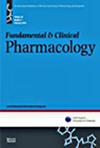Matrix metalloproteinase 9 implication during colorectal carcinogenesis. Effect of doxycycline
Abstract
Background
Matrix metalloproteinases (MMPs), including MMP9, play a significant role in colorectal cancer (CRC) progression, mainly by extracellular matrix remodeling. However, little is known about MMP9 role in aberrant crypt foci (ACF) cluster formation, the earliest colon preneoplastic lesions.
Aims and methods
We conducted a bioinformatics analysis of MMPs expression in CRC using Gene Expression Profiling Interactive Analysis2 (GEPIA2). Subsequently, we investigated MMP9 expression during the early stage of colon carcinogenesis in mice and assessed the effect of doxycycline (DOX), a global inhibitor of MMPs, on ACF cluster formation. Thus, NMRI mice received two weekly injections of 1,2-Dimethylhydrazine (DMH, 20 mg/kg, subcutaneously), followed or not by DOX (100 mg/kg, orally, from the 4th to the 6th week).
Results
GEPIA2 analysis indicated that among the 28 identified MMPs with collagenase and doxycycline-sensitive activities, MMPs 1, 3, 7, 9, and 13 were overexpressed in CRC tissues. Moreover, only MMP1 and MMP9 correlated well with collagen expression in colorectal tumors. In vivo, methylene blue-stained DMH-treated colons revealed multiple ACF clusters at week 6, associated with mucosa remodeling and sustained nitrosative stress as attested by enhanced collagen fibers, malondialdehyde level, and nitrotyrosine deposits. Pyrosequencing showed increased methylation at the tenth CpG site of the MMP9 promoter, which was associated with increased MMP9 expression. Interestingly, DOX attenuated the number and size of ACF clusters and mucosa remodeling without rebalancing nitrosative stress.
Conclusion
Overexpression of MMP9 occurs early during colorectal carcinogenesis, and doxycycline may control the pathological remodeling of colon mucosa into ACF clusters by attenuating MMP9 activity.

 求助内容:
求助内容: 应助结果提醒方式:
应助结果提醒方式:


